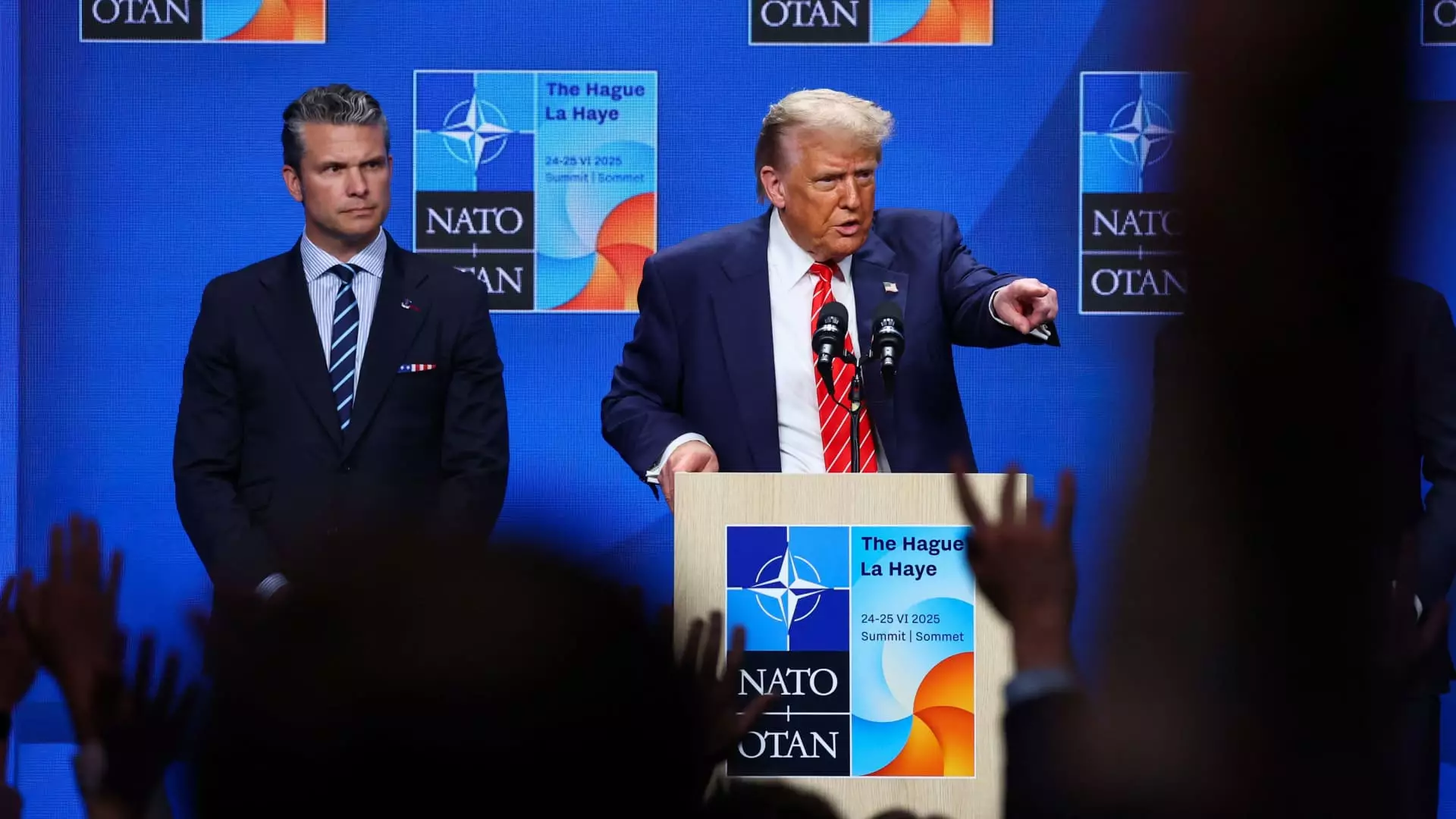In the realm of politics, the truth is often malleable, shaped by the storytelling prowess of those in power. President Donald Trump’s recent pronouncement that U.S. airstrikes completely obliterated Iran’s nuclear capabilities exemplifies this manipulation of reality. At a NATO summit in The Hague, he made bold claims, stating that the Iranian site at Fordo is “totally obliterated.” This declaration is alarming not merely for what it asserts, but for the broader implications it carries in an era where misinformation can lead to severe geopolitical consequences.
However, the reality presented by preliminary intelligence reports sharply contrasts Trump’s assertions. While Trump insists on total destruction, these assessments suggest that the strikes only set Iran’s nuclear ambitions back by a few months—hardly the catastrophic blow Trump proclaims. By downplaying the significance of these reports, the President undermines the very fabric of informed decision-making that should underlie international relations.
The Weight of Intelligence Amidst Political Posturing
The tension between the Trump administration’s claims and the intelligence community’s assessments raises vital questions about trust and accountability. The Pentagon’s responses and efforts to counter the intelligence report reveal a troubling lack of transparency. While Press Secretary Karoline Leavitt labeled the report as “flat-out wrong,” her defense of Trump’s more aggressive narrative seems more like a politically motivated cover-up than a genuine attempt at clarity. Using derogatory terms to describe intelligence officials, like calling them “anonymous, low-level losers,” indicates an administration more interested in protecting its image than honestly engaging with the truth.
In tandem with this is the Pentagon’s move to initiate a leak investigation through the FBI. Such actions signal a defensive posture, not of an administration confident in its decisions but rather one scrambling to maintain control over the narrative. This instinct to suppress dissent within its own ranks speaks volumes about the fragile state of their claims.
A Dangerous Dance with Misinformation
The use of language in Trump’s rhetoric also merits scrutiny. When he asserts that nations’ abilities, like Iran’s nuclear program, are “obliterated,” it poses not just a psychological effect—int creating a sense of invulnerability to his base—but also escalates tensions internationally. This “bully rhetoric” simplifies complex international paradigms into black-and-white absolutes, blinding the public to the nuances critical for understanding geopolitical dynamics.
Moreover, such aggressive claims leave little room for diplomacy. With nuclear proliferation being a matter of global security, veiling the truth in rhetorical bravado not only risks escalation but also diminishes the credibility of the U.S. as a negotiating partner. By fueling false narratives, we run the risk of entering conflicts based on perceived rather than real threats; a dangerous path that threatens both U.S. and global stability.
Intelligence and War: A Complicated Relationship
The complexities of military intelligence must be acknowledged as well. Intelligence assessments are inherently tentative; they involve a degree of uncertainty that requires careful interpretation. Notably, the high-ranking officials have characterized the intelligence regarding the Iranian strike as “low confidence.” This label further complicates an already contentious narrative, leading to a dilution of the efficacy of U.S. military action.
Yet, it is essential to question why a dramatic reduction of threat is so readily dismissed by Trump and his cohorts. Their narrative suggests a desire to avoid reflecting the cautious and uncertain nature of intelligence that could undermine their strongman image. When wars are waged and military actions executed, informed debate should fuel decisions rather than sweeping declarations made from a podium for political expedience.
The stark divergence between intention and reality in the U.S. approach to Iran’s nuclear program raises urgent concerns about the integrity of leadership. As history has shown, the consequences of misleading the public with grandiose claims can lead to catastrophic outcomes. Sustainability in foreign policy requires accuracy, honesty, and an understanding that the road to peace is often more convoluted than any proclamatory narrative suggests.


Leave a Reply